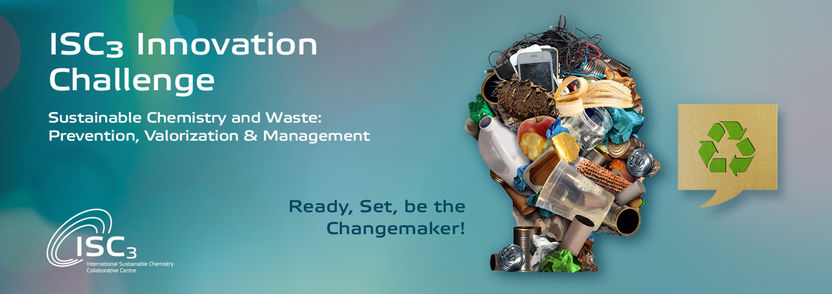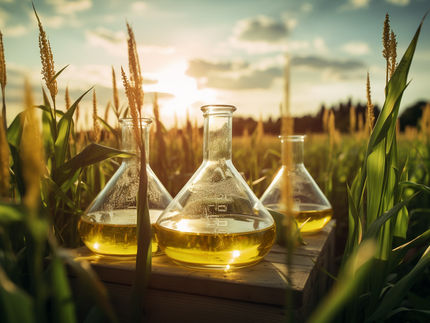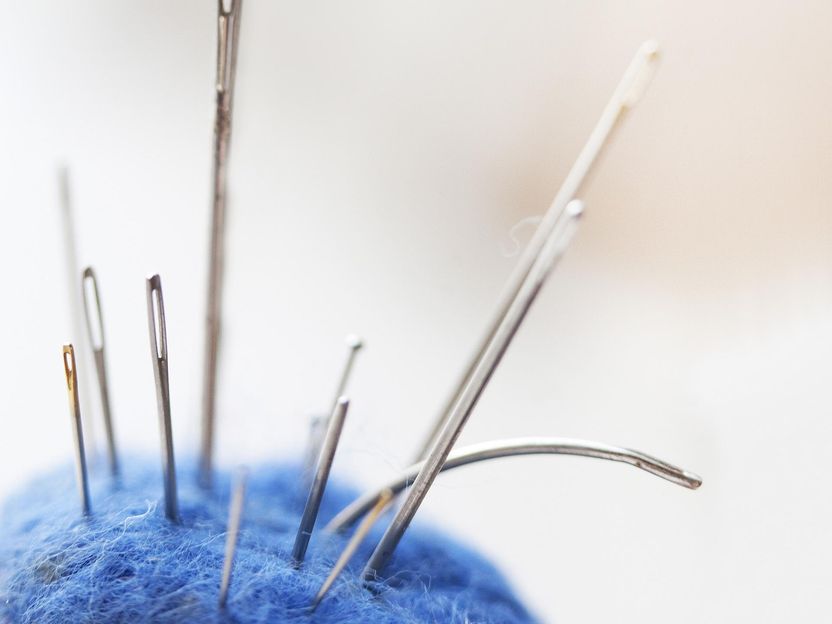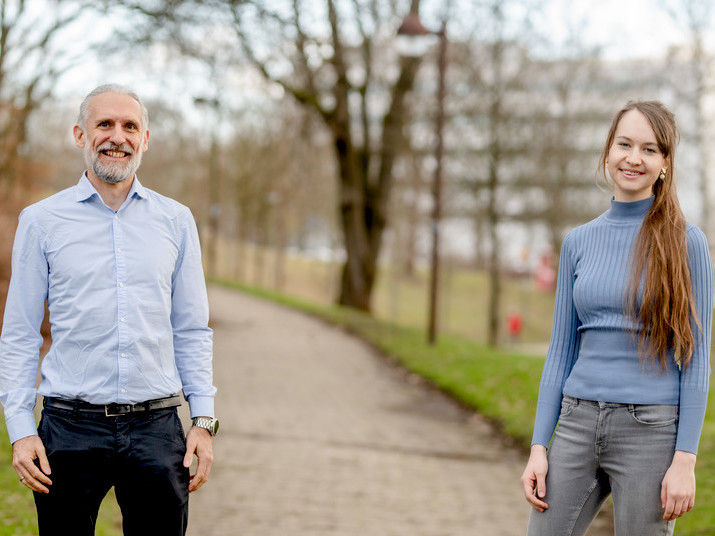Innovative solutions related to Sustainable Chemistry and Waste
Finalists of the third ISC3 Innovation Challenge selected
The voting period of the third ISC3 Innovation Challenge that called for innovations in the field of sustainable chemistry and Waste: Prevention, Valorisation & Management just ended. The international jury of experts chose its 10 finalists from a large number of top-notch applications from five continents.

ISC3 Challenge 2022
ISC3
This year, the ISC3 was looking for innovative solutions from all fields related to Sustainable Chemistry and Waste, such as avoiding and reducing environmental impact, durability and resilience, substitution of critical product ingredients preventing recycling, product design for longevity and better recyclability, recovery and reuse of waste streams, energy and scarce element recovery, safe and sound management of waste, and waste management related to renewable energy supply.
After a long and careful preparation and two-rounds selection process that started out in April 2022, the following start-ups made it through to the ISC3 Innovation Challenge 2022 finals competing with 170 further start-up solutions (alphabetic order):
- B-Fresh Technologies, Serbia: B-FRESH has developed a sustainable technology to help prolong fresh food shelf-life up to 100%. The technology encapsulates active components that are on the GRAS list (Generally Recognized as Safe), completely natural and nontoxic, to create an antimicrobial effect on a large number of different bacteria, yeasts, and mold. The solution is sprayed on top of fruit and vegetables, without influencing the taste or the packaging appearance.
- Brickify Ltd, Nigeria: Brickify is a social enterprise founded to address 3 problems: homelessness, poverty and plastic waste. The Nigerian start-up recycles plastic waste into water- and heat-resistant lumber and “lego” bricks, that are used to make a variety of products such as chairs, tables and even houses. The “lego” bricks are stronger and cheaper than other comparable options such as timber or cement products. As the name suggests, the bricks work in a lego-like manner, they interlock and do not need additional materials added to them when being used for construction.
- Cashew Shell BioRefinery, Germany: Cashew Shell BioRefinery extracts a specific substance from agricultural waste to synthesise bio products, with the potential of displacing millions of kg of existing fossil-based counterparts. In comparison, their bio-based products tend to have a neutral global warming potential, with a minimal exploitation of lands and water.
- Congretype Green Energy Solutions, South Africa: Congretype Green Energy Solutions produces biopesticides using food waste as a substrate-culture-media in a solid-state fermentation process. In that way, Green Energy Solutions offers innovative solution for farmers to exercise local control and viable pest management techniques, with potential to catalyze sustainable local agricultural development.
- EL MAT Sustainable Solutions, South Africa: EL MAT Sustainable Solutions has developed microbial fuel cell (MFC) technology with a dual function - cleaning wastewater and generating electricity. The technology could be applied in low income communities in urban and rural areas for de-centralized electricity producing facilities, utilizing organic waste generated by these communities (households) as well as manufacturers.
- Hustlenomics Pty Ltd, South Africa: Hustlenomics is an impact-driven social enterprise based in Soweto, South Africa. Hustlenomics key impact is replacing informal backyard shacks with durable structures using interlocking bricks made from recycled construction waste, and thereby providing sustainable income for homeowners and affordable rental accommodation for low-income earners.
- Materials In Works, Malaysia: Materials in Works has developed a treatment process that recovers cellulose back into raw material for paper manufacturers, preventing the valuable waste from ending up in landfills. This is mutually beneficial for the environment and the paper industry, as price and availability of raw material are key concerns for industry players.
- MycoTEX/ NEFFA, Netherlands: MycoTEX is a new biomaterial made from compostable mushroom roots for custom-made textile products. The start-up has already evolved into automated manufacturing method called New Fashion Factory (NEFFA). This patented process gives unprecedented design freedom to create silhouettes and textures that were never possible before with traditional manufacturing processes, all while guaranteeing a perfect fit.
- RAY Cosmetics, Ethiopia: RAY uses the agro-waste fish skin and scale to extract valuable protein and further process it to produce domestic natural cosmetics such as skin and hair care products. The process links chemical engineering, food waste management and cosmetology together.
- We Are Galaktika, Germany: We Are Galaktika’s team has developed a resource efficient technology for the chemical recycling of end of life silicones. Their chemical recycling technology allows the use of end-of-life silicones as alternative feedstock for new high-quality silicones, consequently contributing to a circular economy, saving energy and resources, while having a beneficial carbon footprint balance.
All finalists will get access to the customized support of the ISC3 Global Startup Service (ISC3 GSS) in the form of an online pitch training. They will be featured via the ISC3 communication channels as a “lighthouse case study for Sustainable Chemistry innovation” in the ISC3 series Start-up of the Month.
On the basis of their presentation in the end of the pitch training, the selected finalists will be given the chance to compete to win EUR 15.000 and pitch on November 10th, 2022 late afternoon CET during the upcoming all virtual fourth ISC3 Investor Forum 2022.
Other news from the department business & finance
Most read news
More news from our other portals
Something is happening in the life science industry ...
This is what true pioneering spirit looks like: Plenty of innovative start-ups are bringing fresh ideas, lifeblood and entrepreneurial spirit to change tomorrow's world for the better. Immerse yourself in the world of these young companies and take the opportunity to get in touch with the founders.























































